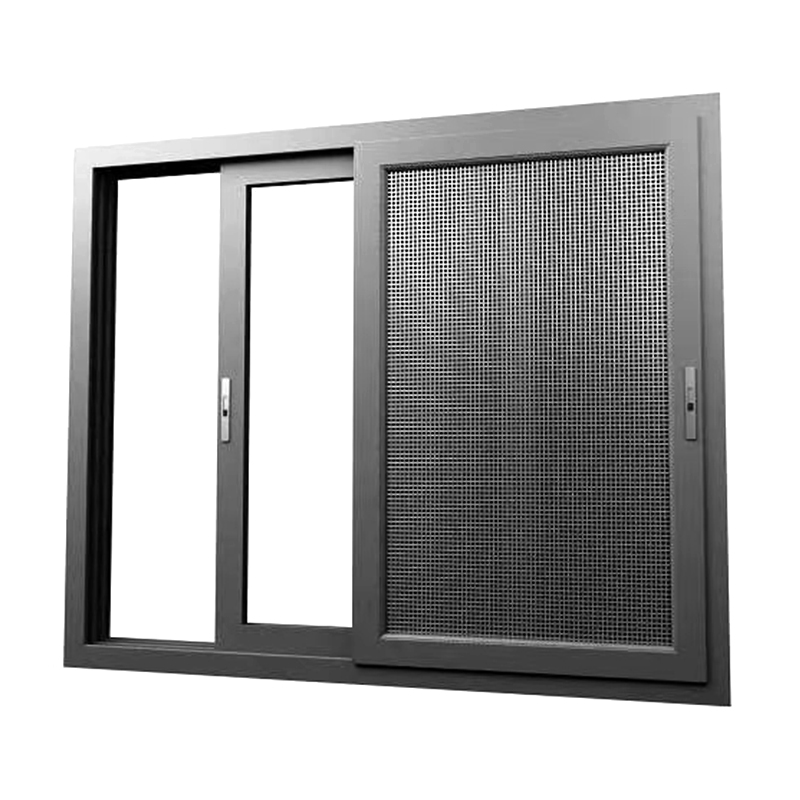Send inquiry
As a common type of window in modern buildings, aluminum alloy sliding windows are favored for their beauty, durability and practicality. However, their maintenance needs are not only determined by the quality and structure of the window itself, but environmental factors also play an important role. Under different environmental conditions, the maintenance work of windows may be different. This article will explore how environmental factors affect the maintenance of aluminum alloy sliding windows and provide some suggestions to cope with the challenges in different environments.
Climate conditions are one of the important factors affecting the maintenance of aluminum alloy sliding windows. Different climate environments may have different effects on the durability and maintenance needs of windows.

In humid climate conditions, such as coastal areas or rainy areas, windows are susceptible to erosion by water vapor and salt, resulting in corrosion of the aluminum alloy surface. Therefore, more frequent cleaning and anti-corrosion treatment are required to maintain the appearance and function of the windows.
On the contrary, in dry climate conditions, such as desert areas or inland areas, windows are susceptible to erosion by wind and dust, which may cause wear of the slide rails and pulleys. Therefore, it is necessary to clean and lubricate the sliding parts of the windows regularly to ensure the normal use of the windows.
Air quality can also affect the maintenance of aluminum alloy sliding windows. Poor air quality may cause dirt to accumulate on the surface of the window, affecting its appearance and light transmittance.
Buildings located in industrial pollution areas may have windows affected by emissions and pollutants, causing dirt to accumulate on the surface. Therefore, it is necessary to clean the window surface regularly to maintain its finish and light transmittance.
Buildings located in busy traffic areas may have windows affected by car exhaust and roadside dust, which will also affect the appearance and light transmittance of the windows. Therefore, it is also necessary to clean the window surface regularly to maintain its cleanliness and light transmittance.
Natural disasters are also one of the important factors affecting window maintenance. Different natural disasters may cause different degrees of damage to windows, which need to be repaired and maintained in time.
During typhoon and rainstorm seasons, windows may be impacted by wind and rain, resulting in broken glass or loose window frames. Therefore, it is necessary to regularly check the structure of the windows to ensure their stability and sealing.
In earthquake-prone areas, windows may be affected by earthquakes, resulting in damage or deformation of windows. Therefore, it is necessary to regularly check the structure of the windows to ensure that they meet earthquake safety requirements.
The environmental conditions around the building will also affect the maintenance needs of the windows. If there is a lot of vegetation covering the building, the windows may be affected by leaves and branches, causing dirt to accumulate on the surface of the windows. Therefore, the window surface needs to be cleaned regularly to maintain its cleanliness and light transmittance. The materials used around the building will also affect the maintenance of the windows. If there is a lot of dust and dirt in the surrounding environment, it may affect the cleanliness and light transmittance of the windows.
The key to maintaining aluminum alloy sliding windows is regular cleaning and inspection. Regardless of the environmental conditions, clean the window surface regularly to remove dirt and dust to maintain its finish and light transmittance. In addition, regularly check the structure and sliding parts of the window to detect and repair potential problems in time to ensure the normal use of the window.
Environmental factors are one of the important factors affecting the maintenance of aluminum alloy sliding windows. Understanding and targeting the maintenance needs of windows under different environmental conditions can help keep the windows in good condition, extend their service life, and provide better protection and service for the building.